Works by Fernão Cruz join the CAM Collection
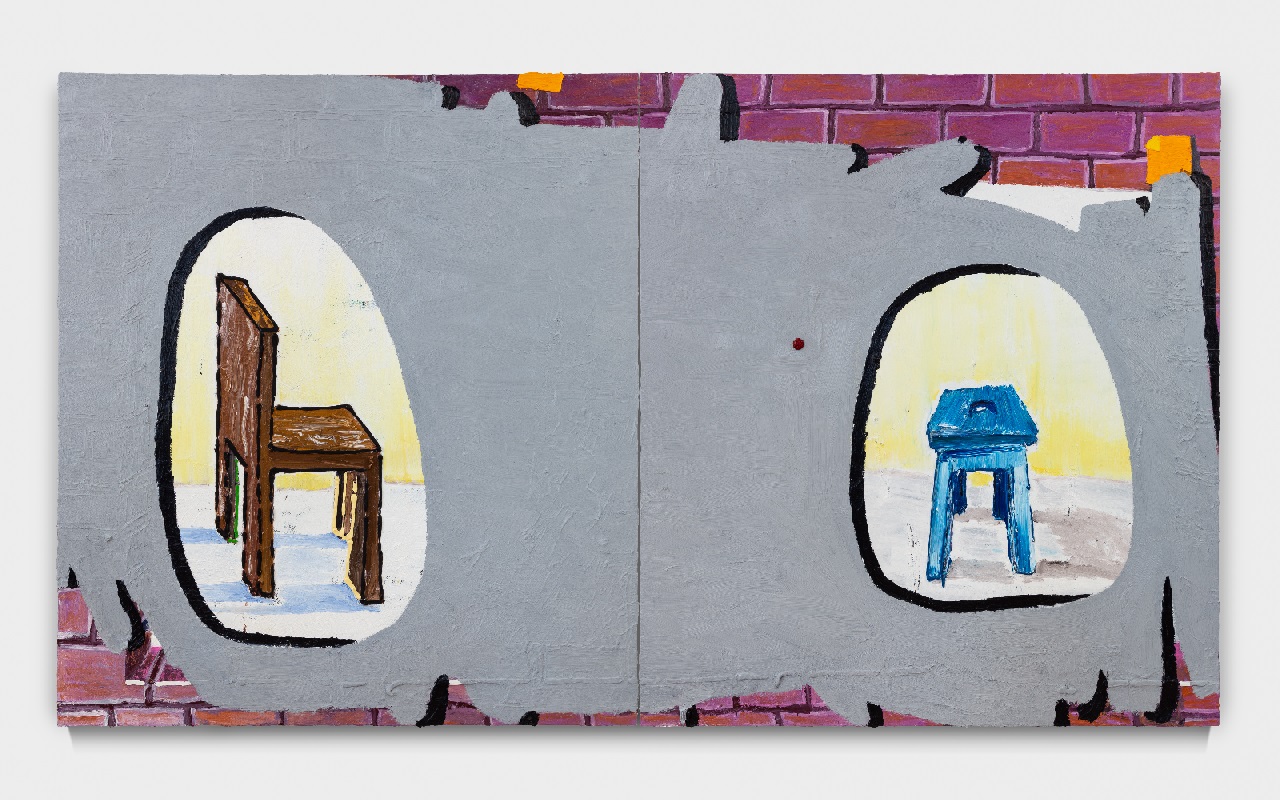
The artist’s paintings have a playful component – games of words and shapes, cut-outs, plasticity – and a considerable scale. The world can be that party where a continuous cartoon enlivens the screens, where an uncommitted, chaotic and dreamlike surreality takes on effervescence, metamorphosis, flow, surprise, absurdity, contortion and thoughtlessness. It can be an inflated place where, hovering and hanging, there are luminescences, shreds of consciousness, momentary projections, desecrated crests and amulets, pop art, brief writing, signs of anxiety, flattened volumes, fleeting fantasies and unexpected whims. The colour is vivid, despite the caverns, doorways, confined spaces and keyholes. Lights, torches and matches chase away the darkness. On one of these canvases, The cave and the spy, we gain access to a reservoir of masks, spectres and ghosts. On the checks, the mesh, the walls, the cut-out maps and territories of many surfaces like this one, isolated and surprising elements appear.
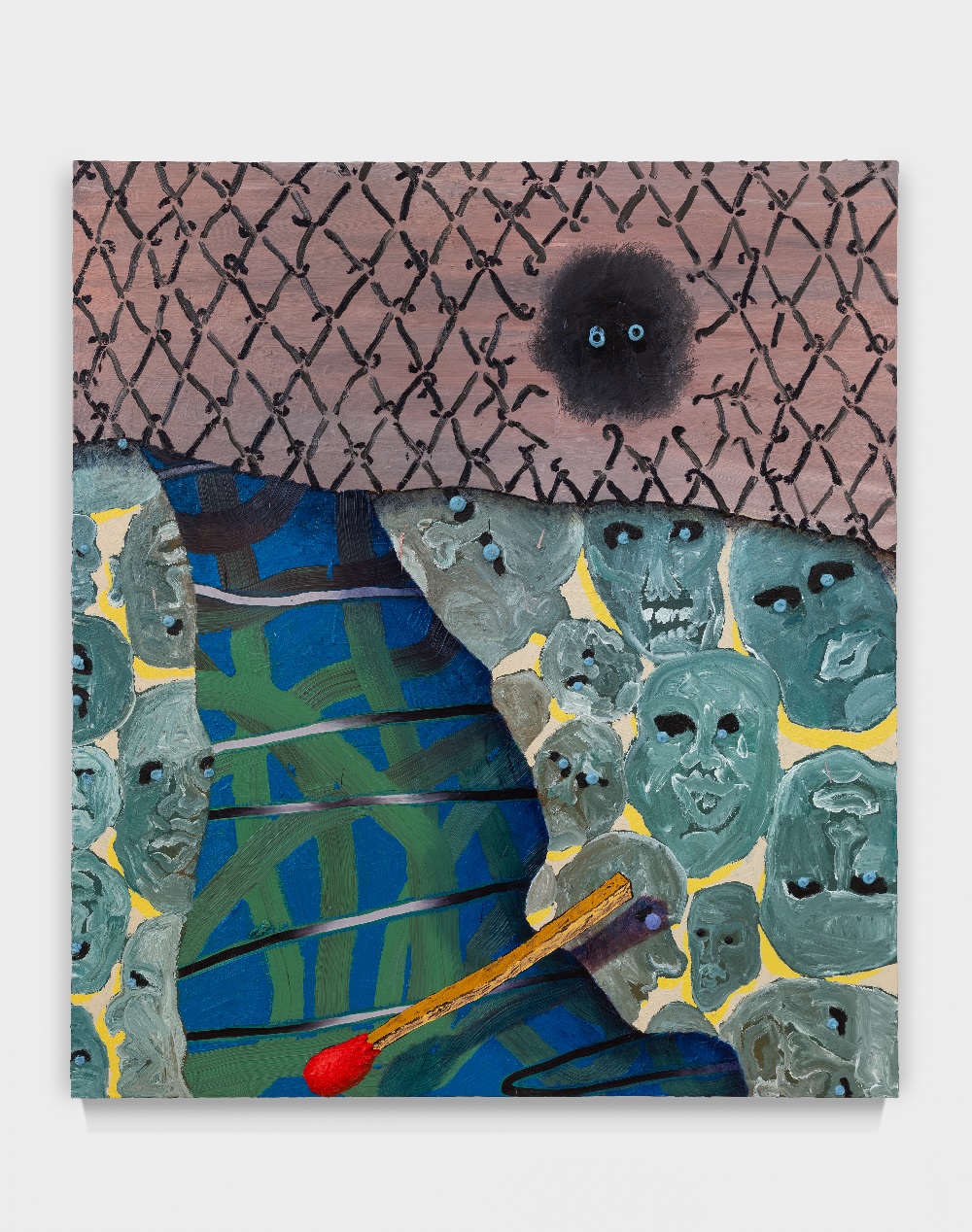
The figure is not absent, but it is a pathetic place of solitude, decline, disappearance, pain and black humour. On the stage, between the curtains which open in one of the paintings, Falling on stage, we see the quintessential falling being, a puppet in whose huge feet and hands we glimpse a tragic, metaphysical deformation. ‘You didn’t ask to be born and are forced to fall onto a stage without an audience,’ says the artist, referring to life and some of his works. In the large diptych The eternal monologue, where a layer of paint almost hides another that represents a wall, a chair and a bench – isolated in their respective bubbles of space – evoke the muffled conversations of an endless therapy, a poorly-explained love, a painful absence.
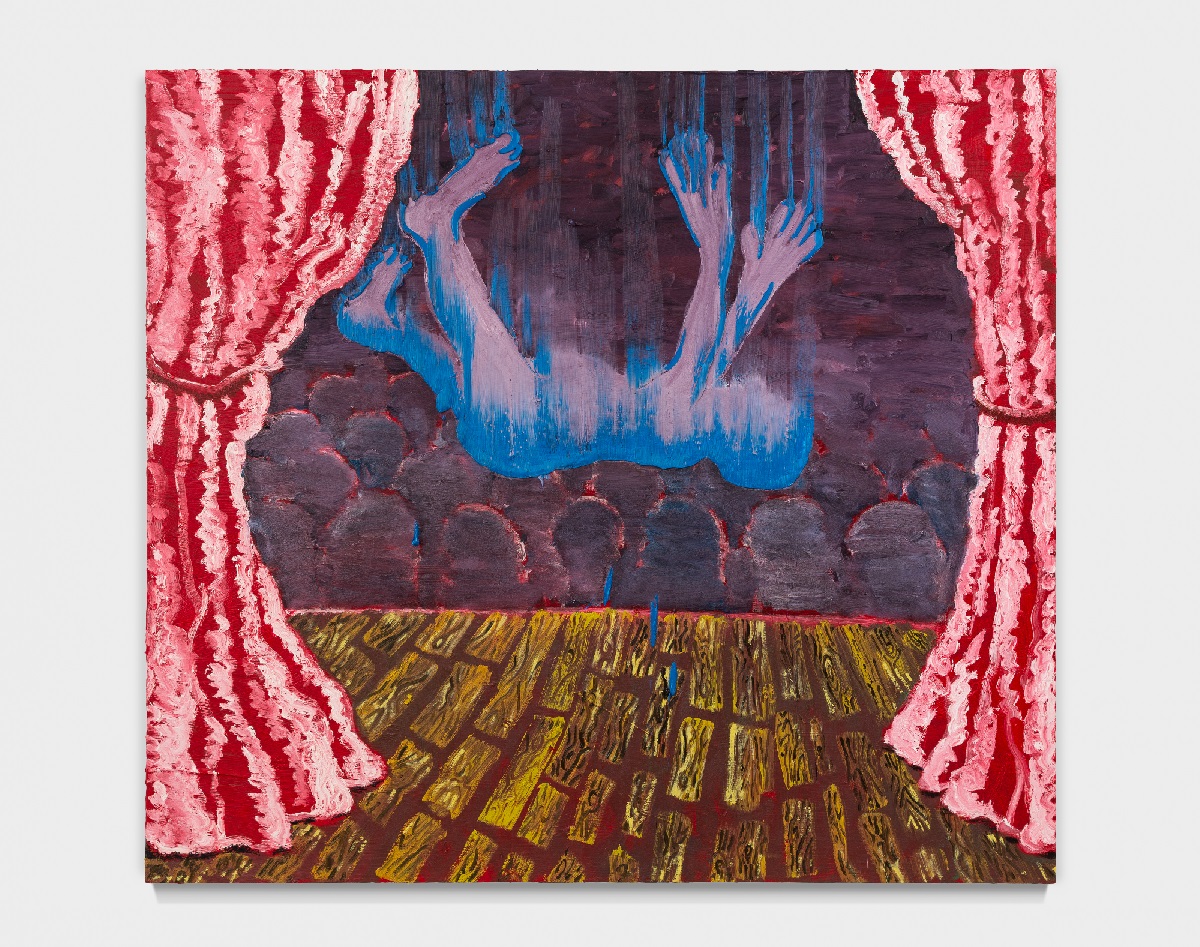
The beings acquire a fluttering and suspended condition; the figures are disproportionate and cut into unpredictable contexts. Their hands assume gigantic proportions, threatening or frightened.
The artist’s sculptural objects in bronze are more or less whimsical records of that which goes through the concrete rush of the day-to-day, but also of the fantasy that afflicts it. A skipping rope has been frozen in its movement and signals the absence of the figure who was holding it. The fallen hands underline their own recurrent importance and make that empty place even more disconcerting Skeleton without purpose. The enormous blue hand holding a cigarette, which emerges from behind a fake wall, enters into formal symbiosis with the smoke crystallised in a derivative and also organic outline Assault.
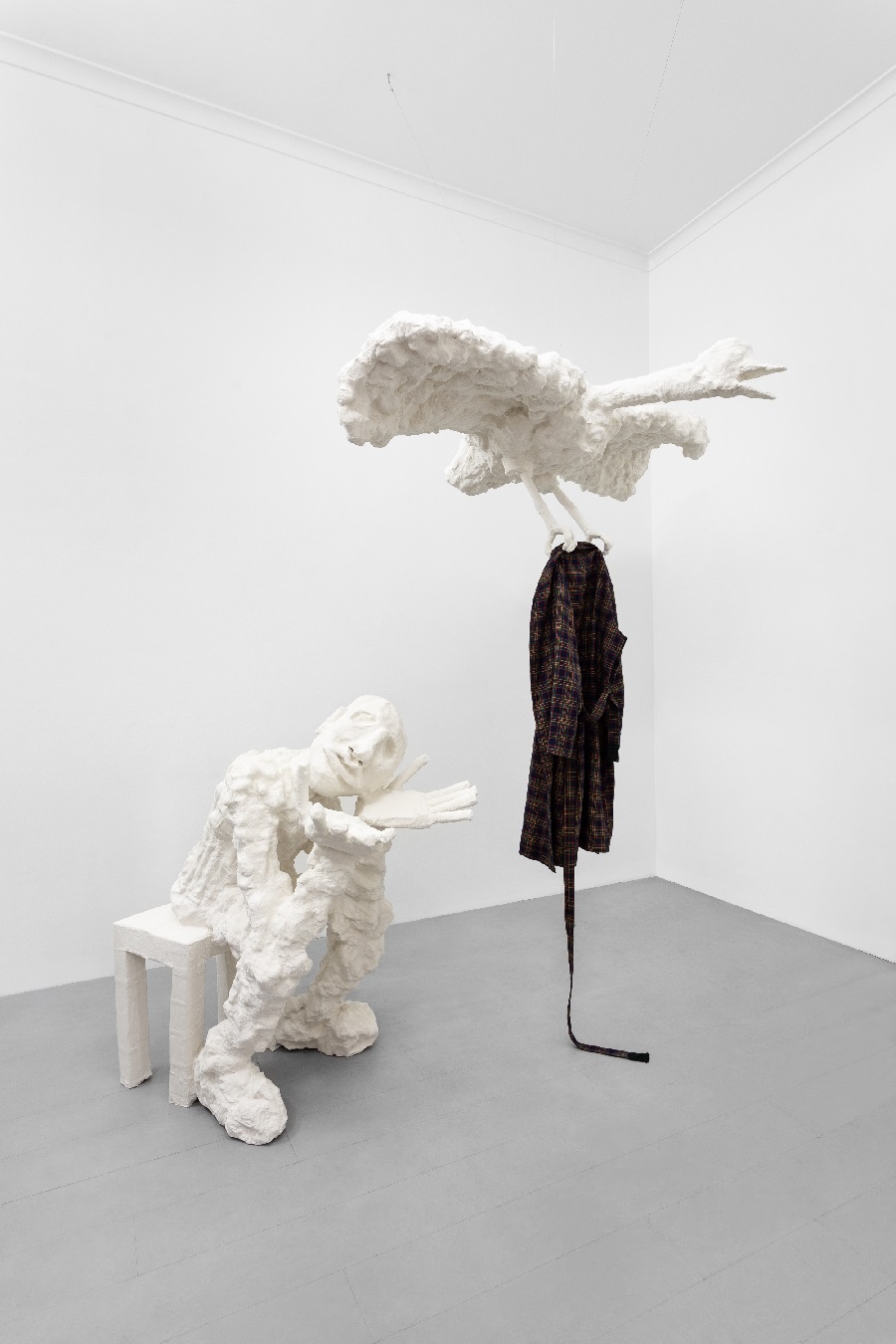
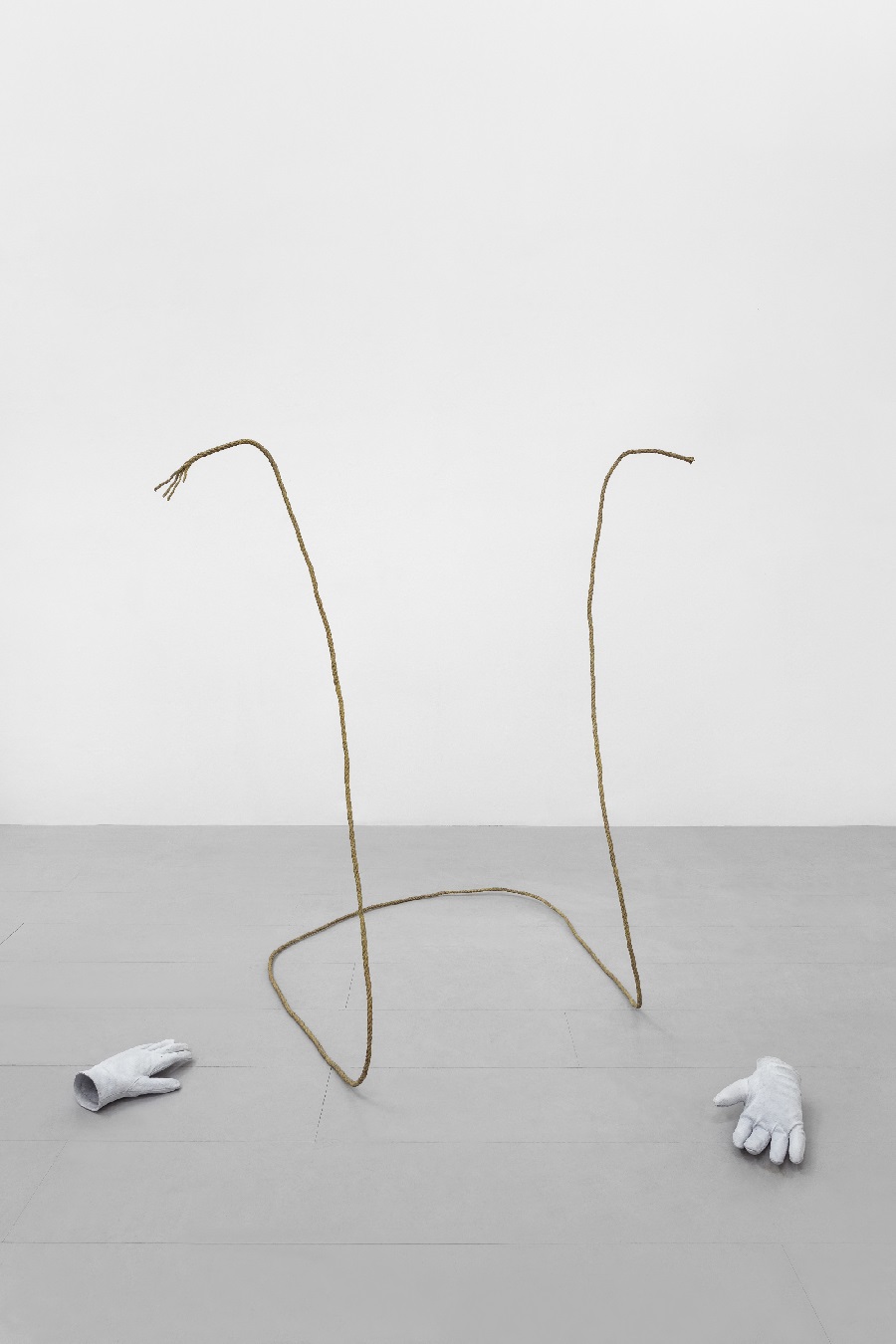
Salvific and terrible, angel, goose or simurgh: all meet in a single unifying archetype, expressed by this enormous bird which comes looking for remains in the dark space of the installation Acceptance. Farewell. The sculpted being that in it brings us back to the human plane has given in and left. A lifeless body is an empty cubicle that we no longer want to look at, no matter how much an intense spotlight forces us to. The scene is violently animal and, in spite of this, or for this very reason, powerfully symbolic.
According to Fernão Cruz, a work ‘has to be capable of its potential self-destruction.’ A work, any work, is in continuous movement from the moment it starts to be undertaken.
Leonor Nazaré
Curator